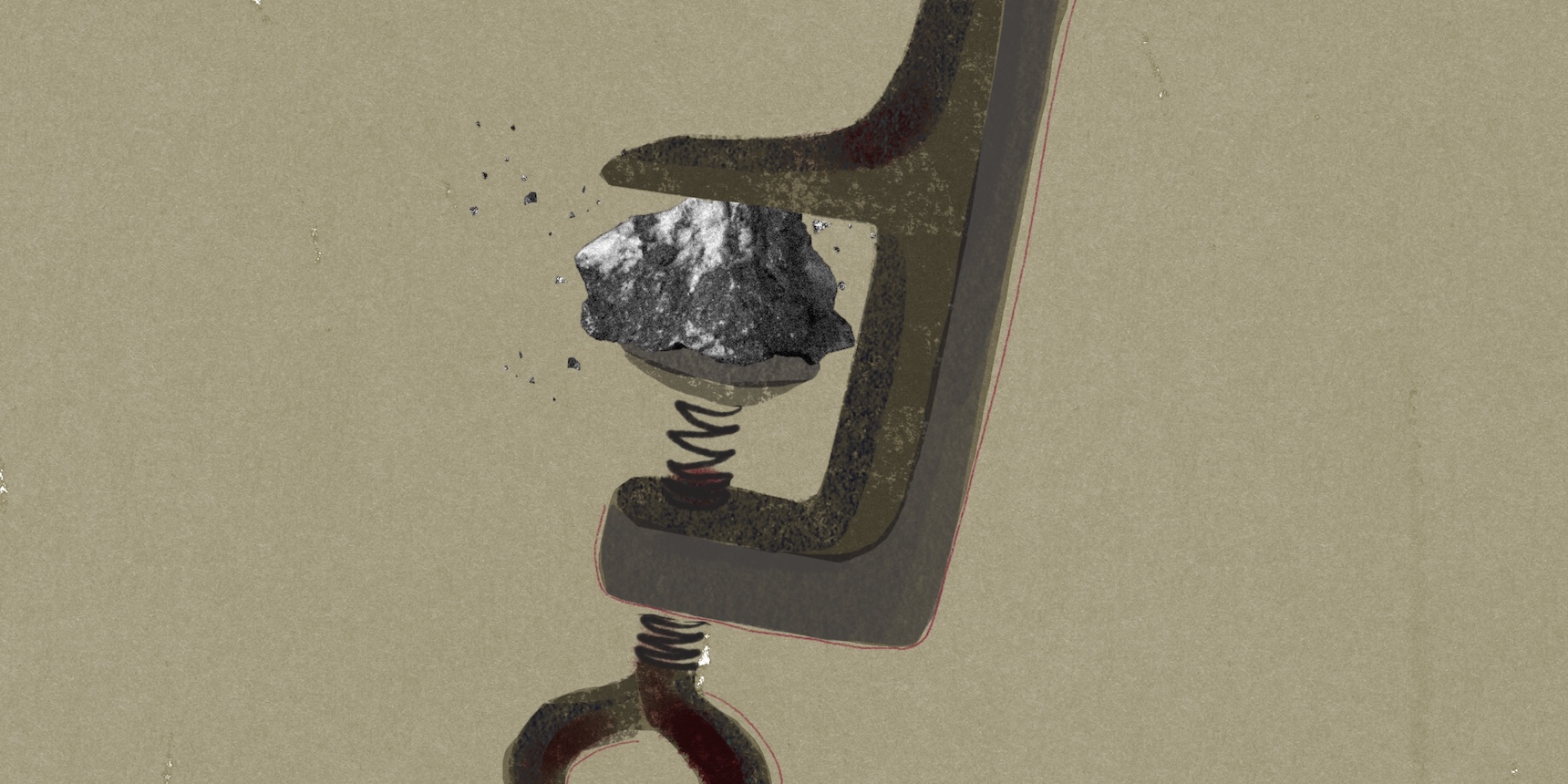
Background
The blockade of the estimated 120,000 Armenians in Nagorno-Karabakh (Armenian name – Artsakh) imposed by Azerbaijan since December 12, 2022, has increasingly deepened and intensified in spite of the February 22, 2023, legally binding order of the International Court of Justice to ensure the unimpeded movement of persons, vehicles, and cargo along the Lachin Corridor in both directions. The blockade started with pseudo eco-protests by state-sponsored activists, evolved into the installment of a checkpoint by Azerbaijani border services in April, and eventually, the banning of first the Russian peacekeepers and then the ICRC from delivering humanitarian aid from Armenia to Nagorno-Karabakh between May and July. After claiming for months that Armenia is transporting weapons, mines, ammunition and military personnel through the blocked corridor with no evidence, Azerbaijani authorities caught contracted drivers of the ICRC “smuggling” cigarettes, fuel and mobile phones and banned them from transporting any humanitarian supplies; even regular medical evacuations became as rare as once a week or two weeks. In parallel, the Azerbaijani Armed Forces continued to systematically fire on civilians trying to harvest their crops, launched small-scale military attacks resulting in casualties, and threatened to conduct a new – Revenge-3 – military operation in order to eliminate the self-defense capacity of Nagorno-Karabakh.
Finally, the blockade reached its critical stage in July: the de facto authorities of Nagorno-Karabakh declared that it had run out of fuel, many alimentary products and medicine. Most pregnant women are suffering from malnourishment, one of them lost her two children and several have miscarried because of the circumstances caused by the blockade. On July 25, the ICRC officially announced that it has not been able to deliver humanitarian aid convoys that were the lifeline of the population in the area for weeks and expressed concern about the impact on the most vulnerable groups. On July 26, Armenia dispatched 19 trucks of humanitarian aid such as food, baby formula and medicine in the presence of ambassadors accredited in Armenia and the EU Mission in Armenia. Azerbaijan, however, blocked its entry denouncing it as a provocation against its territorial integrity and sovereignty and claimed it has been agreed in Brussels that the Aghdam road should become an alternative to Lachin Road.
The next day, the EU unambiguously referred to the ICJ orders and urged Baku to “guarantee safety and freedom of movement along the Lachin corridor imminently and not to permit the crisis to escalate further.” As a response, Hikmet Hajiyev, Assistant to the President of Azerbaijan accused Armenia of political manipulation and urged it to stop “territorial claims against Azerbaijan, withdraw elements of its forces from Karabakh region of Azerbaijan and cease financing the illegal puppet regime.” He went on to demand the “disarmament of all illegal forces”, “reintegration of Armenian inhabitants of Karabakh to Azerbaijan”, and announced that the “game is over.”
What Are Azerbaijan’s Real Intentions in Relation to Nagorno-Karabakh?
By turning Nagorno-Karabakh into a large concentration camp, Azerbaijan is basically implying that subjugating or ethnically cleansing 120,000 Armenians, whether through starvation, depopulation, or a new military offensive, is Azerbaijan’s sovereign right and preventing it to freely exercise it is an intervention in Azerbaijan’s internal affairs by Armenia and the international community. This happens in spite of the recognition of Azerbaijan’s territorial integrity, including Nagorno-Karabakh as part of it, by the Prime Minister of Armenia on May 22, crossing a long-term red line for Armenian society, and even using it to justify its behavior. In reality, not only does Armenia’s recognition of Nagorno-Karabakh as part of Azerbaijan not give Baku the right to exercise subjugation and ethnic cleansing but obliges it to provide security guarantees and human rights to Nagorno-Karabakh in line with international standards. The current situation has also increased the responsibility of the international community for the security and rights of the Armenian population of Nagorno-Karabakh.
The critical stage of the blockade clearly demonstrates Azerbaijan’s long-suspected mega-intentions. Some of these intentions are related to Nagorno-Karabakh and others – to sovereign Armenia. In this article, I will address only Azerbaijan’s intentions in relation to Nagorno-Karabakh.
Azerbaijan is trying to carry out one of the following scenarios for Nagorno-Karabakh Armenians or a combination of their elements:
1. The scenario of the 1940-1944 evacuation of Finnish Karelia
2. Integration as means of subjugation
a. Cutting the link with Armenia to deprive ethnic identity
b. Subjugation under the cover of “integration”
c. Denial of not only external but also internal self-determination
3. Sarajevo-like siege in progress
4. Great famine/starvation/Holodomor Scenario
5. A scenario combining elements of the Srebrenica massacre or Kosovo war
Let’s examine each of those scenarios in detail:
- The Scenario of the 1940-1944 Evacuation of Finnish Karelia
Perhaps, Aliyev’s most preferred scenario would be the depopulation of Nagorno-Karabakh Armenians from their indigenous land, an intention manifested in his statement on January 10: “Whoever does not want to become our citizen, the road is not closed, it is open.” Azerbaijani authorities may also hope that after months of blockade, a significant part of the Armenian population would leave voluntarily, or when they reach the borderline between life and death, Armenia or an international player may organize their evacuation. The choice between living in one’s indigenous homeland with such huge challenges, and living a normal life depends first of all on the level of resilience of the Armenians in Nagorno-Karabakh, which Azerbaijan is trying to break through the blockade. So far, Nagorno-Karabakh Armenians have demonstrated an extraordinary level of resilience. Even during this week when Nagorno-Karabakh ran out of most supplies, several marriages took place. Moreover, patients who were transported by the ICRC to Armenia for medical treatment, still chose to return. This shows how attached they are to their indigenous homeland.
Will Azerbaijani authorities go as far as their propaganda machine on social media, to explicitly demand Armenians in Nagorno-Karabakh leave the territory, or will they continue the blockade and various kinds of coercion to a point when they themselves choose to evacuate? If this happens, the international community will allow a scenario resembling the 1944 evacuation of the Finnish population from Karelia imposed by Soviet Russia to repeat itself. It means allowing an autocratic militaristic state with higher military capabilities and economic resources to ethnically cleanse a small, more democratic ethnic group, and capture further indigenous land and vital space for Armenians as a nation. It will be a manifestation of ethnic cleansing, the contemporary meaning of which is not limited to genocide and massacres.
While the evacuation of Finnish Karelia (1940-1944) took place during WWII, when the United Nations, the EU, the OSCE and other international global institutions did not exist, it would be a huge blow and embarrassment to the international governance system to allow such a scenario in 2023. As Freedom House has suggested, the lack of condemnation of Azerbaijan’s war in Nagorno-Karabakh in 2020 normalized the use of military force for unilateral “conflict settlement” and opened the way for Russia’s invasion in Ukraine. This scenario will further normalize the use of force at the expense of international order, human rights and democracy, and set a precedent for similar cases. Moreover, contrary to the belief of some actors, it will not stop Azerbaijan’s territorial claims to sovereign Armenia. Azerbaijan’s President has made it very clear that Azerbaijan will not stop but will continue to present territorial claims against sovereign Armenia, including even its capital city, as demonstrated in many of his statements. Emboldening a militarist autocrat with an expansionist agenda will further destabilize regional security as well.
2. Integration As a Means of Subjugation
What Azerbaijan calls a “(re)integration” of Armenians in Azerbaijan, may be perceived positively in Europe or the U.S. where integration is a positive term implying equal opportunities and rights for national minorities, such as migrants. However, there is nothing positive in that term in the current context of Nagorno-Karabakh. It reflects the highly selective approach of Azerbaijan to the principles of international law, referring only to territorial integrity and non-intervention but ignoring self-determination of indigenous people, humanitarian, customary and human rights law, civil and political liberties.
In reality, Azerbaijani “integration” means cutting the link with Armenia to deprive local Armenians of their ethnic identity; refusal of the fundamental right of self-determination and subjugating Nagorno-Karabakh Armenians by downgrading their human rights to the most basic level, stripping them of their civil and political rights, and establishing full political control over them.
a. Cutting the Link with Armenia to Deprive Ethnic Identity
No one has denied until recently that Nagorno-Karabakh Armenians should have a special relationship and unhindered link with Armenia. That is why the necessity of the Lachin Corridor linking Nagorno-Karabakh with Armenia has been underlined in all peace plans before the 2020 war, as well as in the November 9, 2020 trilateral statement ending hostilities. The persistent attempt of Azerbaijan to prevent the use of the Lachin Corridor by all means is not only an indicator of Azerbaijan’s non-implementation of its legal commitments and the February 2023 order of the International Court of Justice. It reveals Azerbaijan’s intention to deprive local Armenians of the link with Armenia, which in turn means depriving them of their ethnic identity. Instead, Azerbaijan, in the short-term, is offering to deliver humanitarian aid through the Aghdam road to supply gas, electricity and other basic supplies in the mid-term when Nagorno-Karabakh Armenians fulfill the rest of their demands, such as dissolving their governance institutions, and hinting about some economic benefits as part of integration in the long-term.
The Nagorno-Karabakh authorities categorically refused humanitarian aid from Azerbaijan since it is perceived as degrading and undermining to receive assistance from the party that has deliberately caused the crisis and who continues to deepen it. Judging from social media, that decision enjoys wide public support. Local Armenians have also expressed concerns about food and water security based on historical experiences from the Soviet period. They also express conviction that becoming dependent on Azerbaijan for food, energy and other supplies, means these will be instrumentalized by Baku against them to deprive them from the rest of their rights and establish full political domination over them. Azerbaijan’s current behavior of blackmail and coercion already demonstrates that tendency. Finally, the promise of the benefits of economic integration with Azerbaijan in exchange for relinquishing the link with Armenia reduces Nagorno-Karabakh Armenians to mere recipients of basic needs, such as food, gas, medicine and fuel.
Conflicts erupt when human needs are unmet and when the parties to the conflict believe that the other is responsible for this deprivation. Scholars classify needs into two groups – basic and elevated. Apart from basic needs, such as food and security, there are also elevated needs such as belonging, recognition, individual as well as collective identity. In the case of identity conflicts, when at least one side feels that the other negates its identity, identity issues become crucial for the conflict resolution. By denying the right of Nagorno-Karabakh Armenians to have a link with Armenia, Azerbaijan sabotages reconciliation and peacebuilding. The increasing impression is that Azerbaijan demands NK Armenians to “convert” to Azerbaijani, and not only in a sense of citizenship but also in the sense of identity. This is unprecedented in 2023 and is reminiscent of Russia’s denial of the ethnic identity of Ukrainians. It is a violation of many human rights conventions, a clear manifestation of ethnic hatred and Armenophobia, and should be treated within the Application of the International Convention on the Elimination of All Forms of Racial Discrimination (Armenia v. Azerbaijan).
b. Subjugation Under the Cover of “Integration”
Since the end of the 2020 war, the Azerbaijani authorities refute the existence of the entity of Nagorno-Karabakh, and state that Azerbaijan is a unitary state, and Armenians will have the same treatment as other national minorities in line with the constitution of Azerbaijan. As part of its policy of historical revisionism, the Azerbaijani propaganda machine has been claiming that Armenians are newcomers in the Karabakh region, and the Nagorno-Karabakh Autonomous Oblast (NKAO) was artificially created by the Soviet authorities. This well-oiled machine calls local Armenians illegal migrants, occupants and even terrorists. Nevertheless, all credible historical records of not only Armenian, but also by international scholars clearly demonstrate that Armenians are indigenous in Artsakh (the Armenian name for Nagorno-Karabakh), have always been self-ruled and that Nagorno-Karabakh was incorporated into Azerbaijan by the Bolshevik authorities in 1920 for political reasons. This article doesn’t intend to get into a debate about historical justice and the belonging of the territory but to only show the ingenuity of the Azerbaijani narrative to deny any status to Armenians, dissolve Nagorno-Karabakh in a larger Karabakh economic region in order to turn local Armenians from a majority to a minority, dissolve their self-governance institutions and establish full political control over them.
Azerbaijan also denies the root causes of the conflict, claiming that during the Soviet period local Armenians lived happily in Soviet Azerbaijan, until they launched a “separatist movement” manipulated by political elites and empowered by Armenia. In reality, as a 1977 article by The New York Times shows, Armenians have suffered “cultural oppression, economic discrimination and other ethnic disadvantages” under the administration of Soviet Azerbaijan, which led to their liberation movement in 1988.
Instead of offering governance models and guarantees for human rights to Armenians in Nagorno-Karabakh, Azerbaijan has only made a vague promise that if Armenians accept Azerbaijani citizenship, they can stay and have the same cultural and social rights as other citizens of Azerbaijan. Baku claims that authoritarian Azerbaijan is a multi-ethnic cosmopolitan country making it sound like a Western democracy that is granting equal and high levels of human rights to all of its citizens.
Meanwhile, Azerbaijan is widely recognized as one of the most autocratic countries in Eurasia with an abysmal human rights record, and has been conducting decades-long policy of ethnic hatred towards Armenians. So far, it has not offered any governance models and guarantees for political rights and civil liberties to Nagorno-Karabakh that has been recognized as more democratic than Azerbaijan – (37/100 vs. 9/100 in Freedom in the World 2023 Report) even in light of its increasing isolation since the 2020 war. Azerbaijan continues denying any status to Nagorno-Karabakh Armenians, even a low-level of autonomy, demanding they be integrated in Azerbaijan. It also promotes a false narrative that Armenians are not indigenous people living in their homeland but just a newcomer ethnic minority that has occupied Azerbaijani land. Moreover, it neglects the political rights and civil liberties of Armenians in Nagorno-Karabakh who have conducted several rounds of elections and formed their governance institutions.
This is not all. Even Azerbaijan’s vague promise of cultural and social rights to Armenians is ingenuine, given the systematic policy of the destruction and appropriation of Armenian cultural heritage to eliminate proof of Armenians being native as part of their historical revisionism, claiming that Armenian monasteries are anything but Armenian – Caucasian Albanian, Udi or Russian, in contrary to the ICJ order about the inadmissibility of such actions.
It seems Azerbaijan presents rights of Armenians as only a right to learn the Armenian language with textbooks prepared in Baku, as communicated during peacebuilding activities, along with the distorted Azerbaijani version of the history and hatred towards their own identity reflected in the textbooks. So, in the case of the Azerbaijani version of “integration”, Armenians will be made to unlearn to be Armenian.
c. Denial of Not Only External But Also Internal Self-determination
The principle of self-determination is one of the fundamental principles of the UN Charter (Article 1.2), International Covenant on Civil and Political Rights (Article 1), International Covenant on Economic, Social and Cultural Rights (Article 1), the UN Declaration on the Rights of Indigenous Peoples, the OSCE Helsinki Act and other legal instruments.
International legal documents and the theory of international relations don’t determine independence or secession as the only way for self-determination as they conflict with the principle of territorial integrity. External self-determination has been exercised in the context of decolonization, the dissolution of the Soviet Union and Former Yugoslavia, or remedial secession (Kosovo, South Sudan), in some cases – a mixture of the elements of decolonization and remedial treatment (Bangladesh, Eritrea, Timor-Leste).
At the same time, internal self-determination, which is manifested through autonomy, or a special status has been considered a mostly uncontroversial inherent right. While most metropole states have opposed the independence or secession of entities considered under their jurisdiction or being disputed territories, only few of them attempted to deny an autonomous or special status to them. Milosevic was one of few who simply reduced, although not fully abolished, Kosovo’s autonomous status, and started the oppression of the ethnic Albanian population, which led to the armed conflict, international humanitarian intervention and remedial secession of Kosovo.
In the Western democracies, there are well-known entities with various degrees of an autonomy or a special status – Scotland and Northern Ireland in the United Kingdom, Catalonia and Basque Country in Spain, Quebec in Canada, Åland Islands in Finland, and finally, New Caledonia, Corsica and other territories in France. In order to delegitimize France as a mediator in Armenia-Azerbaijan peace process, Aliyev has targeted it for “neocolonialism” and oppression of rights; however, this claim is counter-intuitive as both New Caledonia and Corsica have a high level of autonomy, enjoying not only social and cultural but also civil and political rights and freedoms, while Azerbaijan is denying any autonomy or special status to Nagorno-Karabakh Armenians.
In general, the notion of territorial integrity has not given a green light to any state to oppress an ethnic group under its jurisdiction. In accordance with the UN General Assembly Resolution 2625 (XXV) adopted in 1970, “every State has the duty to refrain from any forcible action which deprives peoples […] of their right to self-determination and freedom and independence […] The use of force to deprive peoples of their national identity constitutes a violation of their inalienable rights and of the principle of non-intervention.”
As Laurence Broers, a leading researcher and scholar of the Nagorno-Karabakh conflict and a long-time facilitator of peacebuilding activities between Armenians and Azerbaijanis tweeted on July 25, “the blockade renders irrelevant any talk of the civil integration of Karabakh Armenians. It vindicates the worst fears of the Karabakh Armenian population vis-a-vis the Azerbaijani state. The starvation of the Armenian population will leave a new legacy of unforgiving distrust canceling any hopes of reconstituting community relations…The ethnic cleansing of Karabakh would mean a new chapter in the logic of coercive, exclusive nation-building in the South Caucasus, a whole new raft of contested issues between Armenians and Azerbaijanis, and chilling implications for the region’s other minority populations.”
Indeed, this blockade significantly exacerbates the already difficult process of reconciliation, peacebuilding and peaceful co-existence. It demonstrates that it is impossible to imagine Nagorno-Karabakh Armenians under the direct political control of Azerbaijan, especially without a strong international presence safeguarding the protection of civilians.
The most logical and reasonable approach to address the situation of Nagorno-Karabakh Armenians is through a dialogue between Baku and Stepanakert. However, there are necessary conditions for such a dialogue:
a) Neutral location to guarantee the safety and freedom of Nagorno-Karabakh negotiators and create a favorable environment for negotiations;
b) Given the huge imbalance of power between both parties, the presence and mediation by a solid international actor under an international mechanism is needed;
c) Azerbaijan should not impose pre-conditions, such as dissolution of governance institutions and self-defense capacity.. Furthermore, it should not predetermine the outcome of negotiations and exploit them as a means of coercion and subjugation;
d) Any hints about “amnesty” for Nagorno-Karabakh authorities should be excluded as an ingenuine attempt by Azerbaijan to reject its responsibility for the conflict and its severe violations of human rights throughout its history. Human rights violations by all parties to the conflict should be discussed within transitional justice mechanisms aimed at facilitating acknowledgment of each others’ grievances and long-term reconciliation;
e) Both parties must refrain from maximalist approaches during negotiations and demonstrate good will, and the mediator should not only facilitate and organize but also be actively engaged and oversee the process not to allow the use of coercion during negotiations or breakdown of negotiations.
In the next part of this article, unfolding scenarios reminiscent of the Sarajevo-like siege, the great famine (similar to Holodomor of Ukrainians), and ethnic cleansing with elements of the Srebrenica massacre and the Kosovo war will be discussed. They will be accompanied with recommendations for the international community to take preventive measures and ensure that none of these scenarios are allowed to materialize.
Also see
Security Report
Strategic Obstructionism and a Potemkin Hegemon
EVN Security Report: June 2023
In this security report, scenario planning is fused with contingency planning to prepare courses of actions and outcomes that may address unexpected situations and mitigate significant impact to Armenia due to the ongoing Russia-Ukraine conflict and its effect upon Russia’s domestic political order.
Read moreRecently published
Aliyev Organizes Media Show in Shushi
In Shushi, the Aliyev regime gathered a mix of journalists from state agencies of mostly authoritarian countries, pro-Azerbaijani analysts, and “useful idiots” for a Global Media Forum on July 21-23. Hovhannes Nazaretyan explains.
Read moreA Peace to Fail All Peace
International mediators have to step up their pressure on Baku, which must include the threat of sanctions in response to further military action against Armenia and continued refusal to unblock the Lachin Corridor.
Read moreThe Humanitarian Crisis in Nagorno-Karabakh Exacerbates Regional Instability
Ignoring the obvious political, moral and legal realities in addressing the plight of the people of Artsakh is tantamount to watering the seeds of further instability with proliferating effects, writes Armenia’s former Minister of Foreign Affairs Zohrab Mnatsakanyan.
Read moreEditorial
What It Means to Be Methodically Starved
Baku does not want to end the humanitarian catastrophe it precipitated by blockading the Lachin Corridor. Its intent is to ethnically cleanse Artsakh of its indigenous Armenian population that has lived and flourished on that land for millennia.
Read morePolitics
The Rostov Mutiny and the Armenian-Russian Security Partnership
This article looks at the Wagner Group’s role in the ongoing invasion of Ukraine, the timeline of events that transpired in Rostov Oblast on June 23-24, and the implications of the Rostov Mutiny on the wider Armenian-Russian security partnership.
Read moreCan a Piece of Paper Bring Long-Lasting Peace?
Without a clear recognition of the reality on the ground, especially Azerbaijan's obstructionist behavior, and without substantive enforcement instruments provided by international actors, a piece of paper cannot serve as a real peace deal, Tatevik Hayrapetyan writes.
Read moreIn Nagorno-Karabakh, Upholding the Notion of Territorial Integrity Means Ethnic Cleansing for Armenians
In Nagorno-Karabakh, the consequences of upholding Azerbaijan’s territorial integrity entails the imminent threat to the indigenous Armenian population that is no different than Kosovo, Timor-Leste or South Sudan: the inevitability of ethnic cleaning and genocide.
Read moreBy the same author
Part I: What May Happen to Armenians in Nagorno-Karabakh
In Part 1 of a three-part series, Sossi Tatikyan analyzes the uncertainties and possible scenarios for Nagorno-Karabakh if Armenia’s leadership goes ahead with the recognition of Azerbaijan’s territorial integrity.
Read morePart II: What May Happen to Armenians in Nagorno-Karabakh
In order to understand what may happen to Armenians in Nagorno-Karabakh if appropriate international guarantees for security and human rights are not put in place for them, Sossi Tatikyan presents the evolution of several comparable conflicts.
Read morePart III: What May Happen to Armenians in Nagorno-Karabakh
In this next installment of a series on the Nagorno-Karabakh conflict, Sossi Tatikyan presents a way forward given the current situation to ensure security guarantees for the Artsakh Armenians and mark progress in the conflict’s resolution.
Read moreThe Divergent International Approaches to Secessionist Inter-Ethnic Armed Conflicts
The global response to secessionist inter-ethnic conflicts is shaped by a number of factors, from the extent of the threat of ethnic cleansing, to possession and instrumentalization of energy sources and more. Sossi Tatikyan explains.
Read more
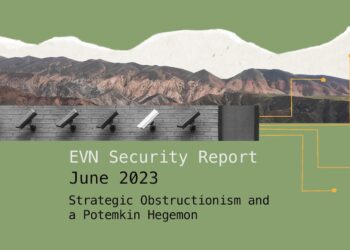





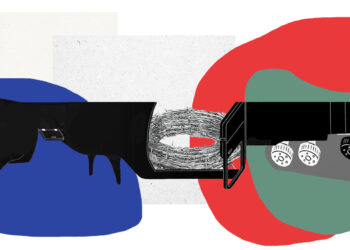


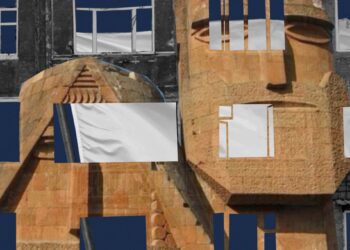
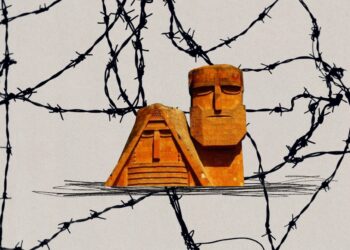


Only a militarily & diplomatically
stronger Armenia can advocate for Artsakh. Artsakh’s security is Armenia’s security. “If we surrender Artsakh to Azerbaijan, we will turn the last page of Armenian history.”
Armenian Republic must recognize the Artsakh Republic as an independent nation-state. Apologists for the Armenian government’s refusal to recognize Artsakh will argues that recognition of Artsakh will trigger an Azerbaijani attack on Armenia. If the Armenian government is motivated by the fear of Azerbaijan’s illegal use of force against Armenia, then the international community is impotent in the South Caucasus. Nations that stridently condemn this ot that atrocity in Africa or Asia become dumb-mute when Aliyev’s army beheads elderly Armenian women & men. If the international community is impotent in the South Caucasus, then Armenians must work swiftly & diligently to strengthen the Armenian military. Armenia must return experienced military officers to their duties & have governmental policies that place national security at the center of all decisions. The present Armenian government’s mission that sent food & medicine to earthquake struck Turkey, PM Pashinyan’s visit to Pres. Erdogan’s inauguration, opening a border crossing for Azerbaijanis living in Turkey to visit Armenia, none of these policies have improved Armenia & Artsakh’s national security. Only a strong Armenia can help an independent Artsakh win the basic rights that all human communities deserve.
The International Order works very imperfectively, is applied unevenly and is full of hypocrisy. It has not worked for Armenians who were killed and pushed out of their Armenian Highlands(Eastern Turkey) in 1915, Palestinians living under Israeli occupation on their own land since 1967, persecuted Uyghurs Muslims in China, Georgians whose half their country is occupied by Russian proxies, or oppressed Kurds living in Turkey and Northern Iraq. The list goes on. In a couple of cases, Kosovo, East Timor, Bangladesh, South Sudan, the stars did line up and the western international community did support arguments of ‘self determination” over “national sovereignty”. In the case of Karabakh Armenians it seems that both Russia and US agree that national sovereignty of Azerbaijan trumps over self determination of Armenians. Initially, the Russians preferred an ambiguous status to be decided in the future, but when Pashinyan showed his Western leaning policies, the Russian sided with Azerbaijan to punish Armenia. The US has always favored Azerbaijan for their own geopolitical goals. On the other hand, some of these conflicts are ultimately decided by force which is also contrary to the principles of the international order. Therein lies the hypocrisy.